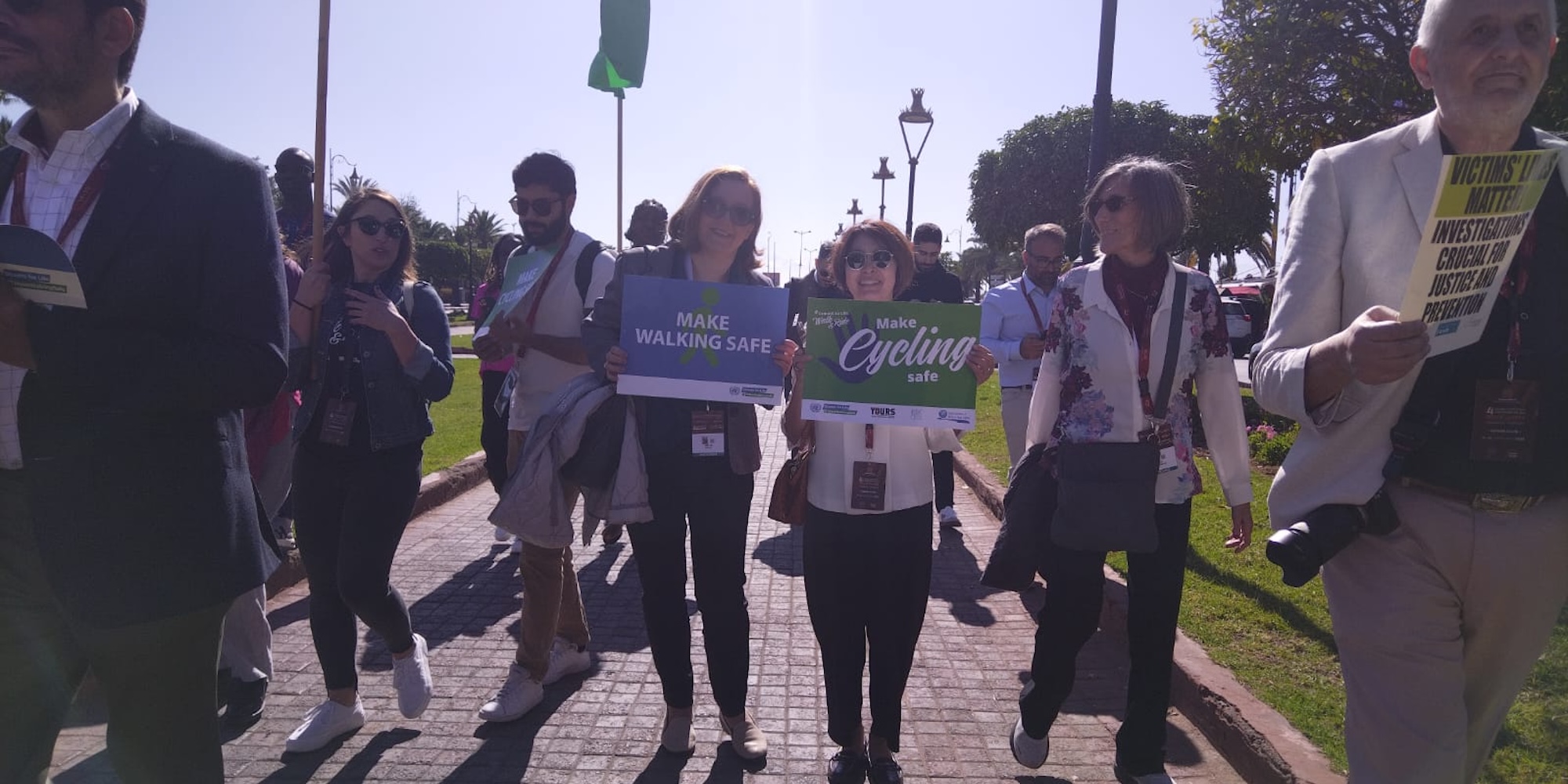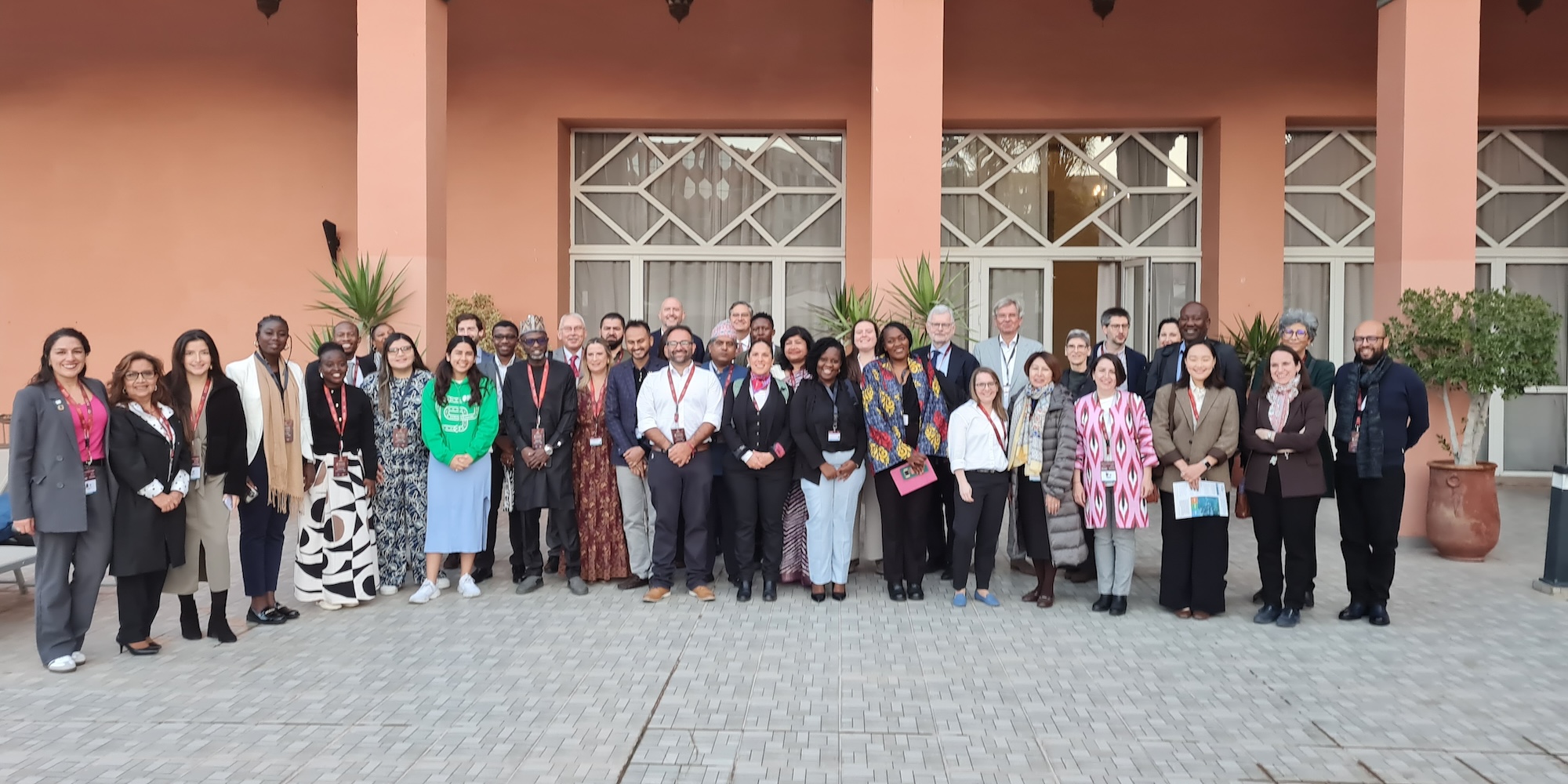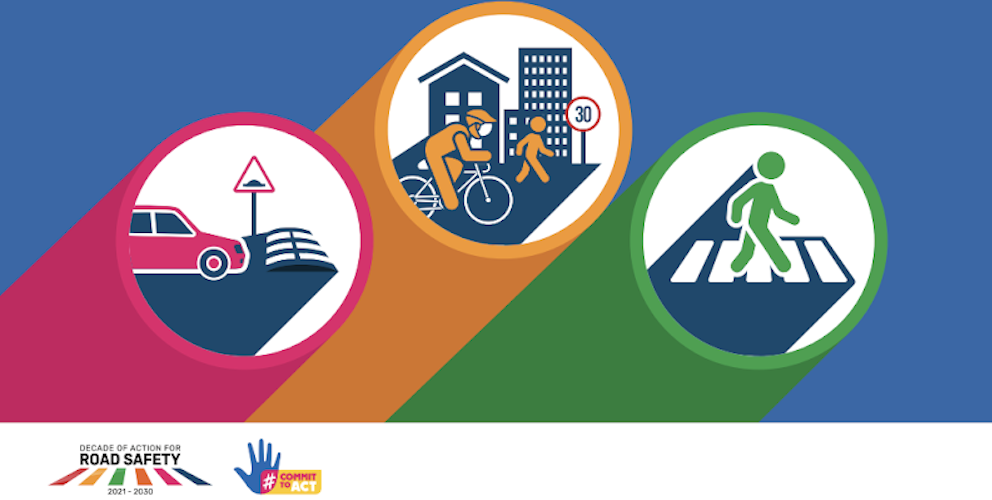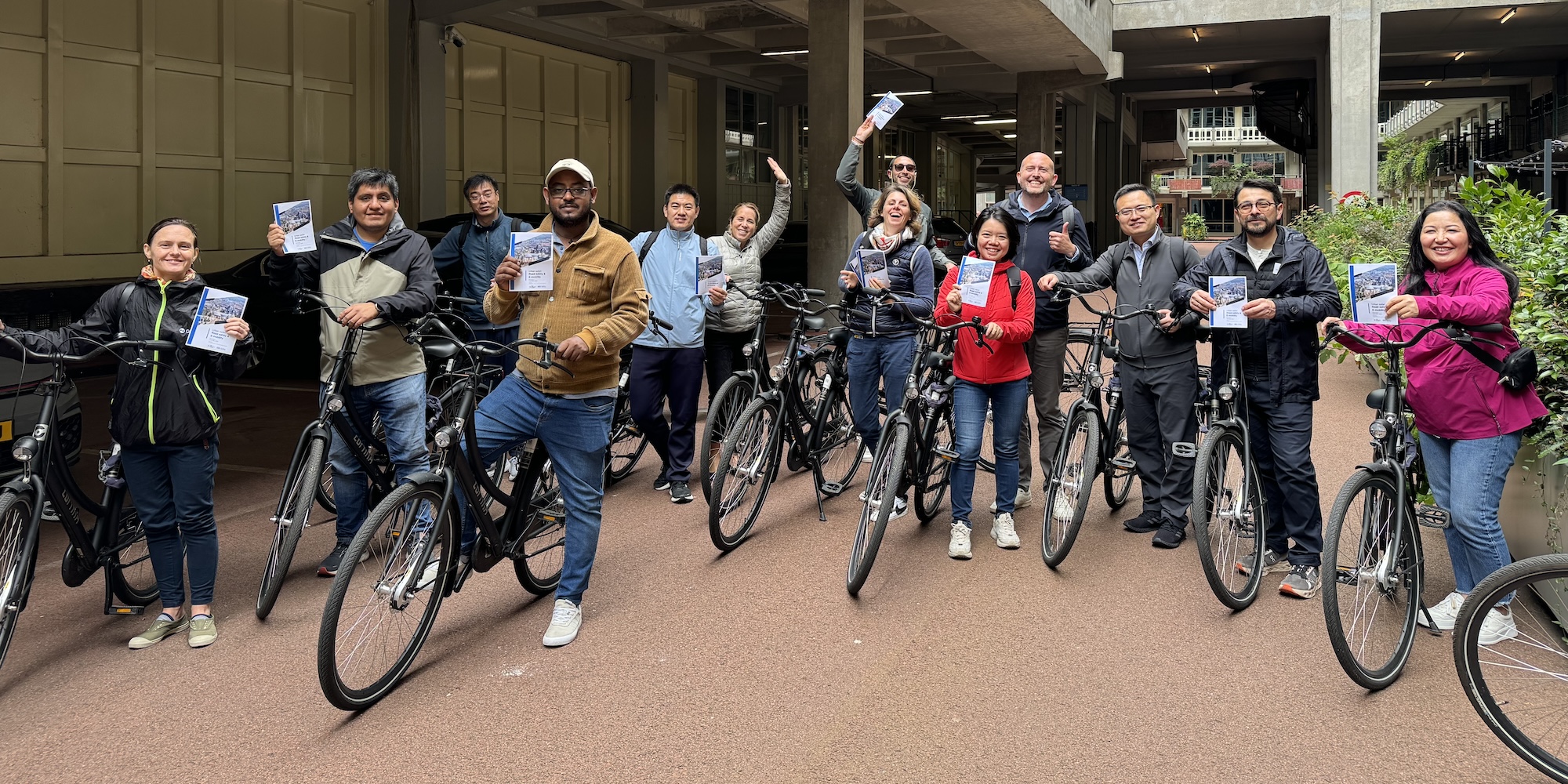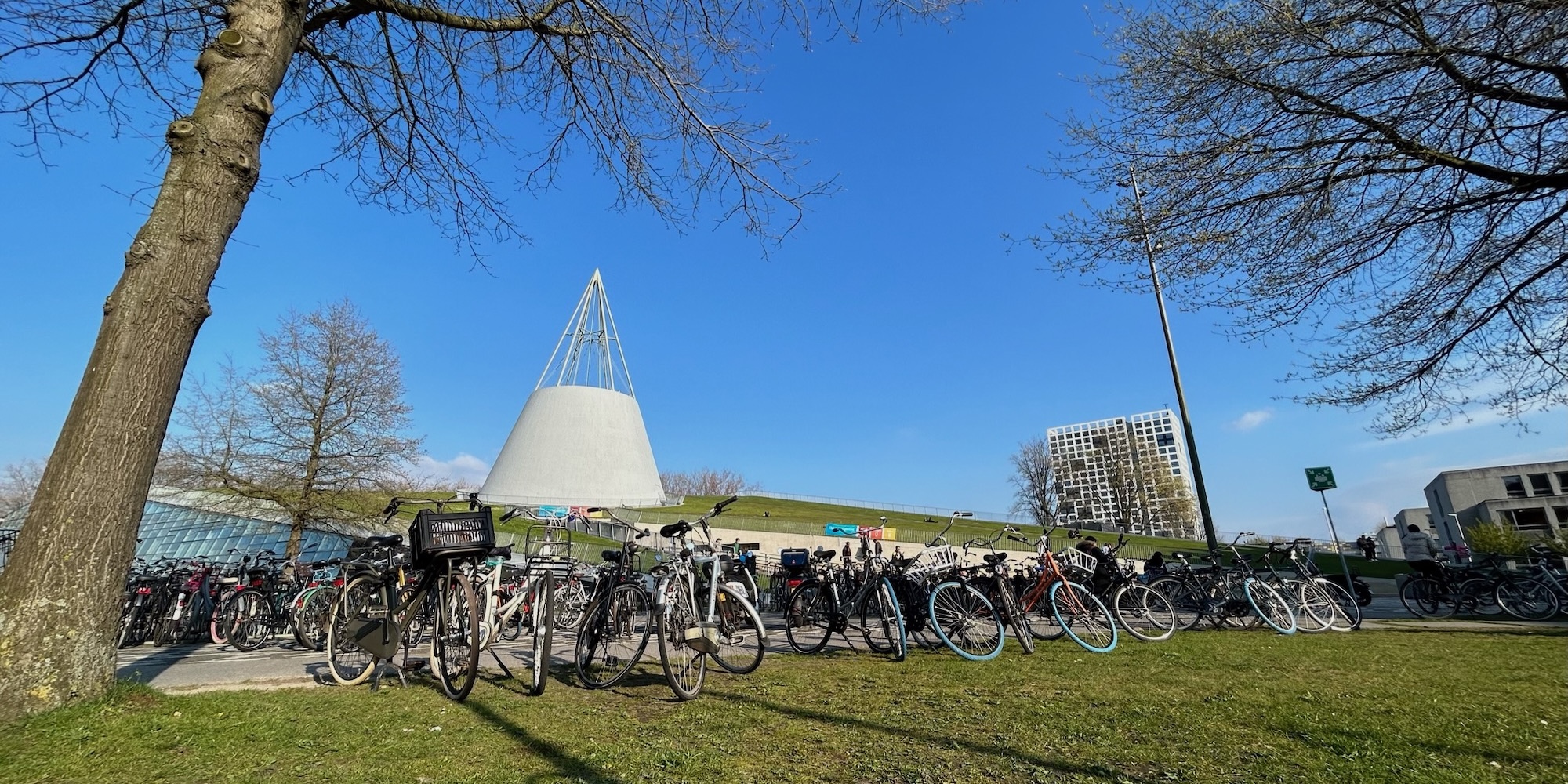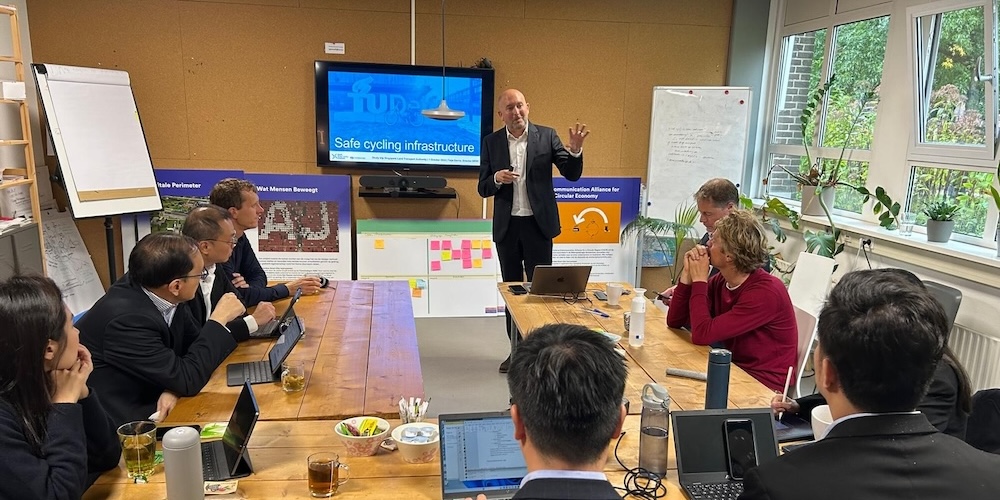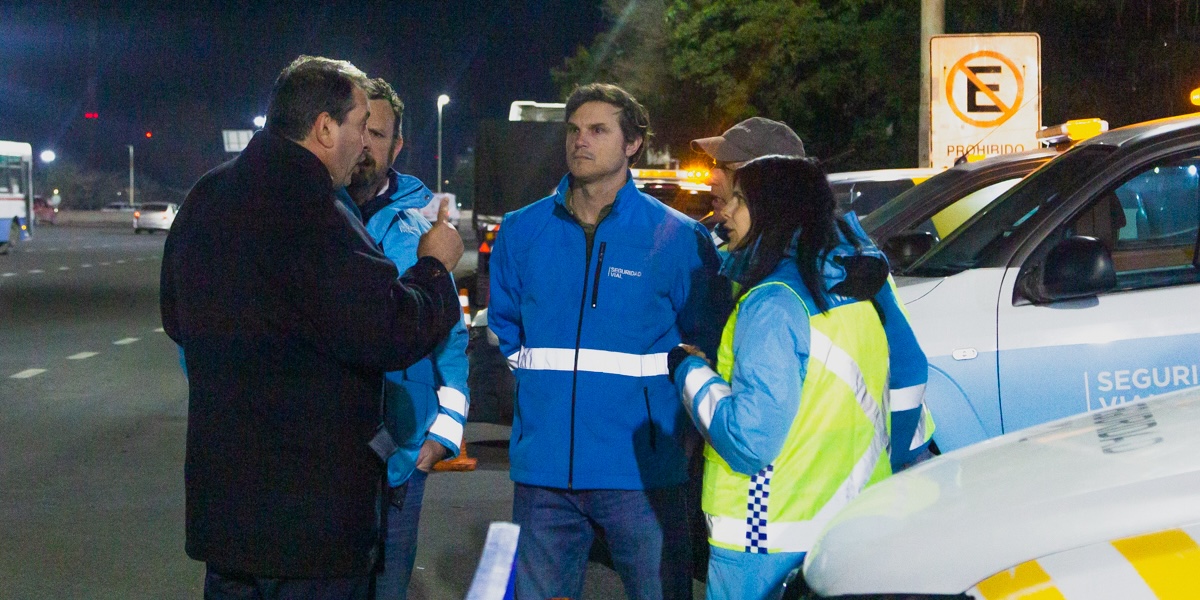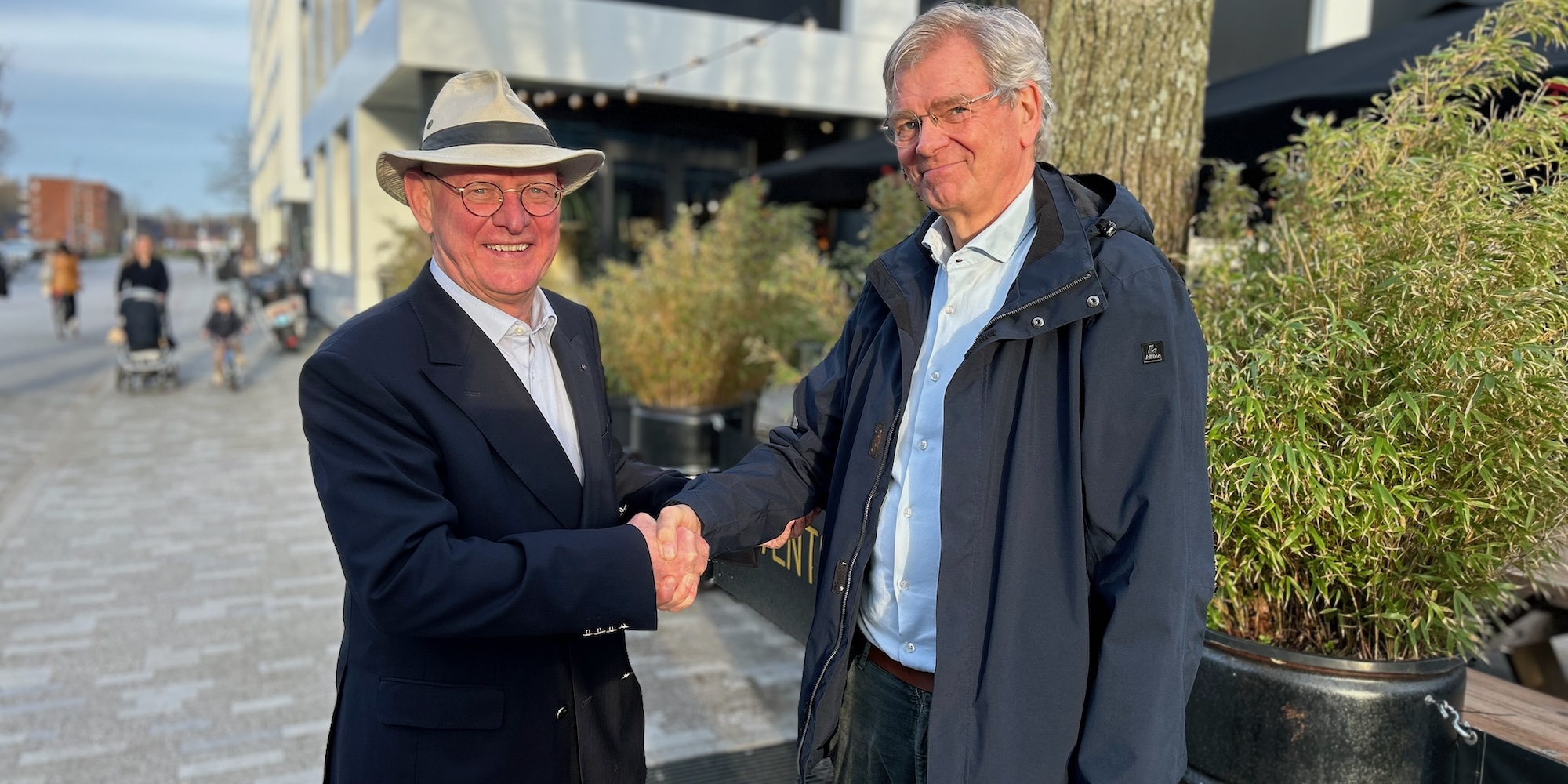DRSC News
2025 course participants enjoy complementary programme on active mobility
In June 2025, DRSC partnered with ACTIVE to offer a complementary learning programme for our 2025 annual road safety course participants on active mobility.
The programme followed on from initial introductory sessions held during our in-person course in Delft in April with two further online sessions in June to explore how the safe system approach can be adapted to support policy making for safe active mobility in low and middle income countries.
Over two sessions participants covered the benefits of promoting active travel, network planning for active mobility, and how it integrates with the safe system approach – submitting examples and case studies from their own countries for analysis.
Following the ACTIVE theory of change about an integrated approach on both ‘software’ (or behavioural aspects), ‘orgware’ (the institutional dimension) and ‘hardware’ (infrastructure), discussions centred on how a country can transition from car dominance to prioritising active travel using the experience of the Netherlands as a key example. Speakers emphasised that although the country is famous for its cycling infrastructure, cars are still an important part of the picture with the Netherlands also one of the most ‘car friendly’ countries in the world. Success, for them, has been based on a strategic combination of public awareness and behaviour change (software), institutional development (orgware), and infrastructural changes (hardware) to strike a balance that meets the needs of all road users.
Promoting safe active mobility is essential for both social and economic development and for reducing road fatalities. Globally, 90% of road deaths occur in low- and middle-income countries. According to the United Nations Environment Programme, over a billion people in Africa walk or cycle for nearly an hour each day, yet 74% of the roads assessed lack footpaths, and 92% have no pedestrian crossings. WHO assessments indicate that improving infrastructure for walking and cycling could prevent more than 5,600 deaths and reduce carbon emissions by 41 million tonnes in cities like Greater Accra over a decade.
At COP28 in 2023, ACTIVE (Alliance for Cycling and walking Towards International Vitality and Empowerment) was unveiled as a new initiative to address these issues. Led by The Netherlands, Belgium and Luxembourg, ACTIVE aims to bring together key stakeholders in the field of active mobility, walking, and cycling, to train 10,000 active mobility experts worldwide in the next 10 years.
This was the second time DRSC and ACTIVE have partnered together following our Active Mobility online course in 2024. With the programme starting in person in Delft, it was a great opportunity for participants experience how a safe system can facilitate active mobility at first hand.



